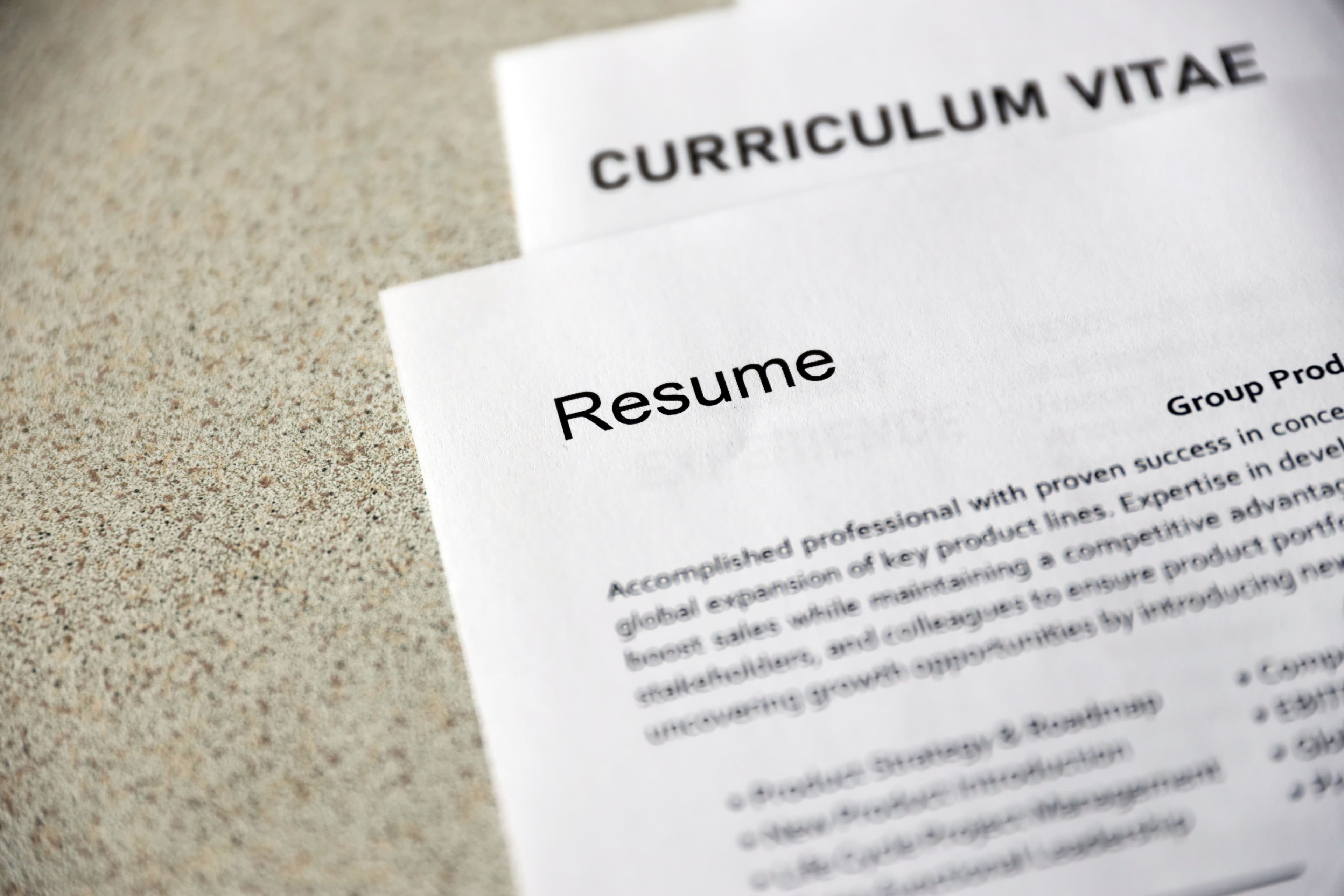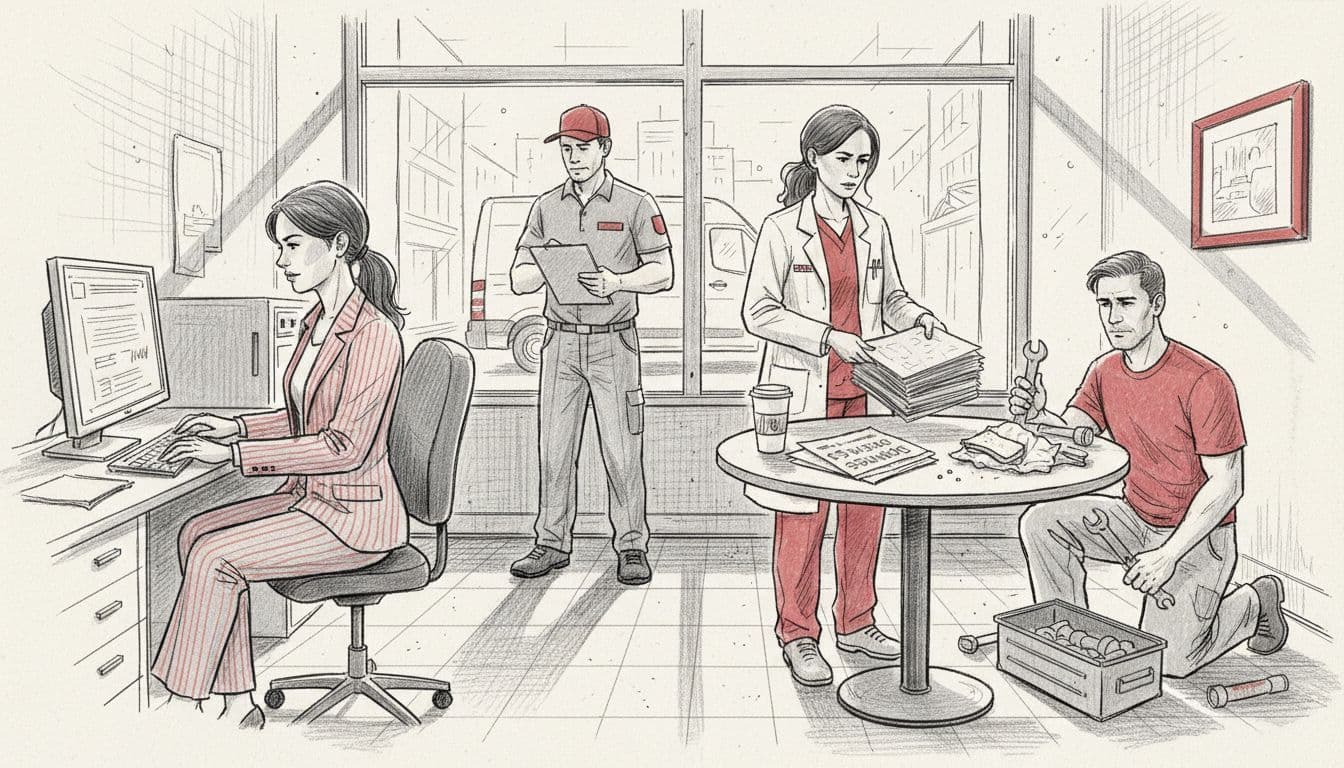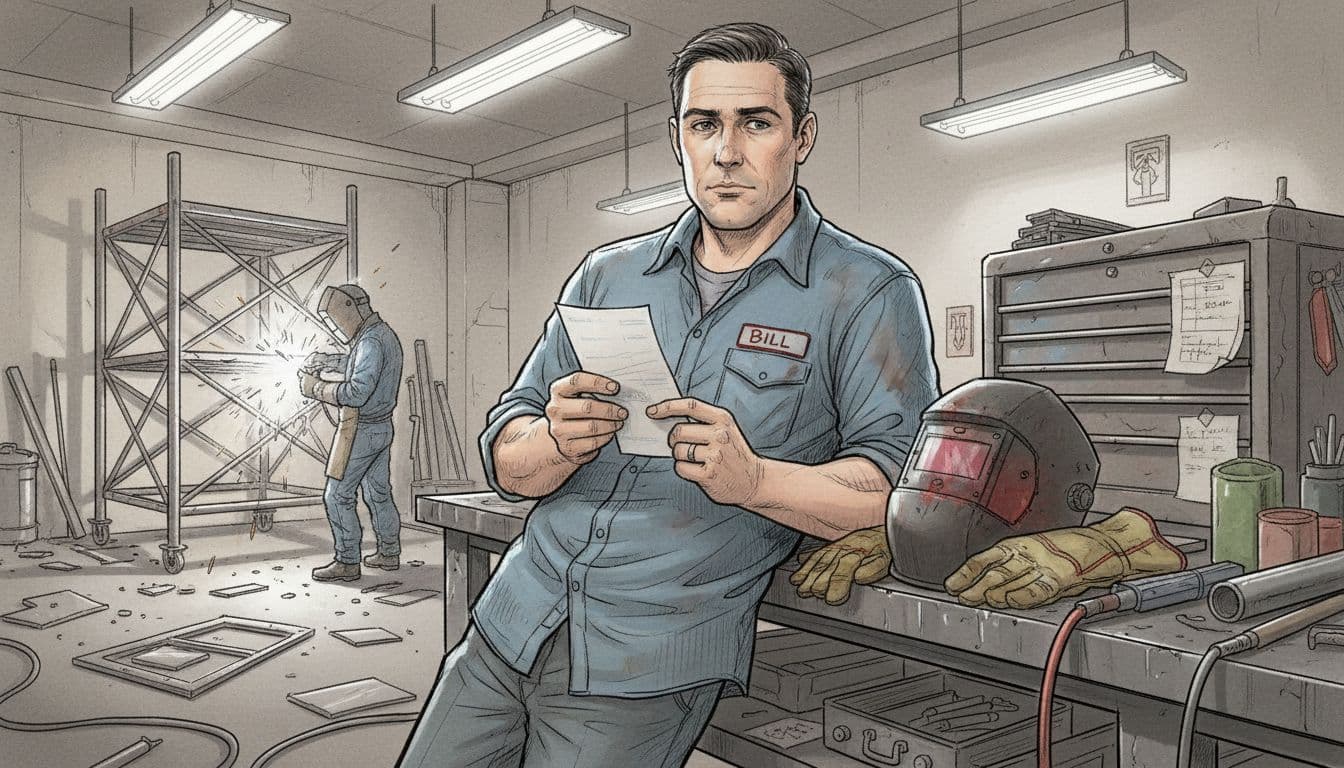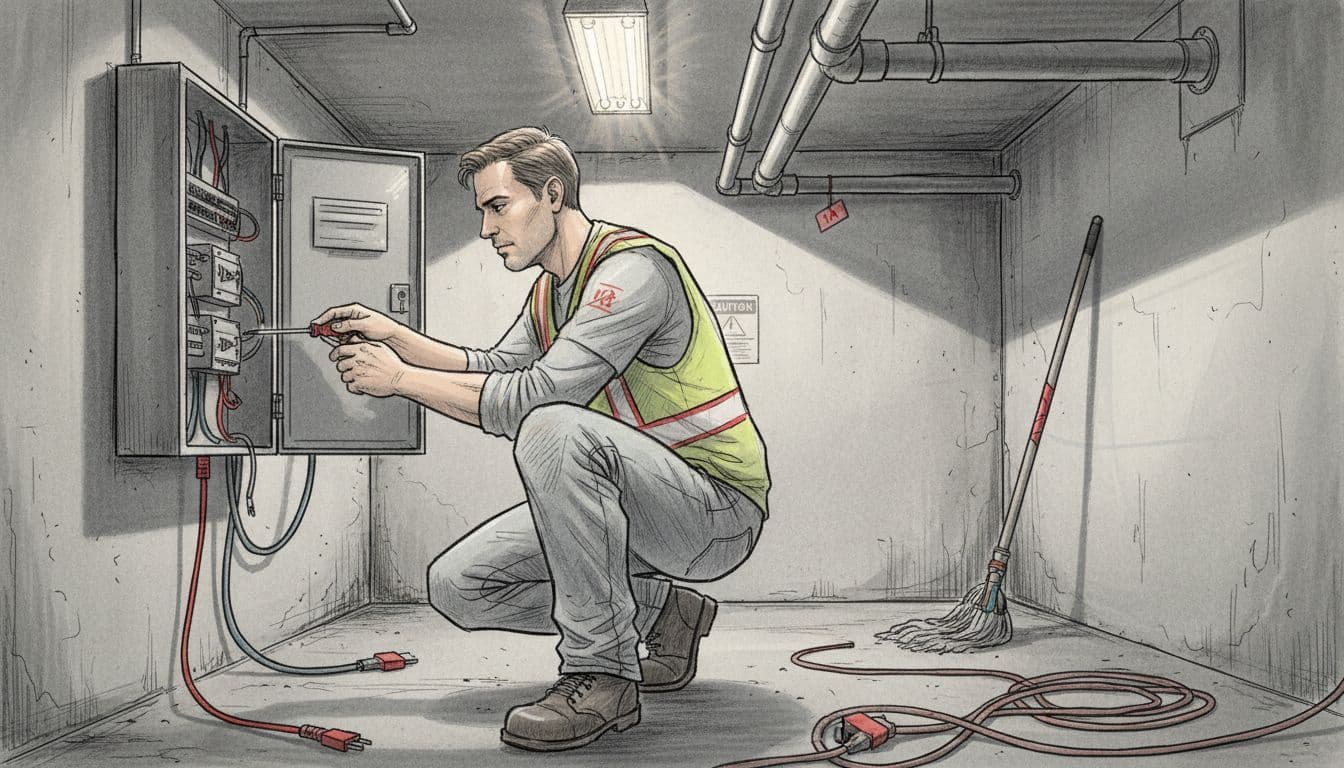Beyond the Resume: Building Your Career Foundation Through Strategic Relationships
01.16.2025
Job Resources

When we think about securing a new job or advancing in our career, we often focus on polishing our resumes—tweaking bullet points, refining our LinkedIn profiles, and adding the latest certifications. These credentials are certainly valuable, but they aren’t the be-all and end-all. Relationships frequently matter more than any single line on your CV.
Regardless of the industry you work in, relationship-building and networking opens doors to lucrative opportunities. Whether you’re aiming for a new job, a leadership position, or want to start a small business, the human connections you cultivate are often more decisive for career success than your technical background alone.
With that in mind, we’re going to take a look at everything you need to know about how and why you need to prioritize your professional network, including:
- Research findings on how different kinds of networking influence salary and career satisfaction
- How to build a professional network from scratch—even if you’re an introvert or a networking “hater”
- Strategies for conducting meaningful informational interviews and turning connections into genuine opportunities and mentors
- How platforms like My Career Shop can help you connect directly with experienced industry professionals
- Why networking isn’t just for corporate roles—it benefits all professions, including the trades, small business owners, and freelancers.
By the end, you’ll have a comprehensive blueprint for nurturing authentic relationships that build long-term career momentum. It’s time to move beyond the resume and start laying a deeper foundation for your professional journey.
Why Relationships Matter More Than Credentials
Now I’m not saying that credentials—degrees, certificates, licenses—aren’t important in your professional life. They can help get your foot in the door or streamline your entry into a specialized field. However, there’s a growing (and often implicit) awareness among employers that who you know and how you collaborate often outweighs what you’ve studied or where you’ve worked before.
In some industries it’s even more pronounced. For example, account executive Kashif Khokhar talks about how you don’t need a lot of experience to get into tech sales. He emphasizes that when hiring entry-level inside sales development representatives, leaders often look for driven, self-starters who can build trust with customers, handle rejection, and cultivate relationships over time.
This underscores a broader theme: soft skills and a strong network can often compensate for gaps in your formal experience. It also shows that professional relationships aren’t just stepping stones; they can evolve into collaborative partnerships, mentorships, and friendships that span decades. In short, credentials can unlock a door, but relationships keep it open and lead you to the next one.
Real-World Data: Networking’s Impact on Salary and Career Satisfaction
The notion that professional connections influence your success isn’t just anecdotal. A landmark longitudinal study by Hans-Georg Wolff and Klaus Moser, Effects of Networking on Career Success, examined how various networking behaviors impacted salary and career satisfaction over three years. Their findings outline why you should invest in cultivating relationships inside and outside of your workplace.
Networking and Salary
The study looked at how maintaining external contacts initially correlates strongly with higher concurrent salaries. In other words, when you keep up relationships with industry peers, college alumni, or vendors outside your immediate organization, you’re often positioned for higher starting pay.The study attributed about 45% of the effect size on baseline salaries to external networking
Over time, however, it turns out that internal networking emerged as the most important factor for ongoing salary growth. That means maintaining positive relationships with colleagues, managers, and executives within your company explained about 49% of the variation in long-term salary progression.
Salary Growth Trajectories
Those who engaged in frequent networking—especially inside their organizations—experienced accelerated salary growth over the three-year period. This suggests that while external networking can help you start on a higher salary rung, it’s the internal relationships that fuel your raises and promotions over the long haul.
What This Means for You
If your goal is to grow your earning potential, don’t ignore either pool—external or internal. Cultivating external networks can help you break into a new role or company, but nurturing internal connections will consistently push you upward once you’re in the door.
How to Build a Professional Network from Scratch
Networking can seem daunting, especially if you’re an introvert or new to your field. However, there are practical, low-pressure ways to start. In A Beginner’s Guide to Networking, Harvard Business Review contributor Rakshitha Ravishankar does a great job of outlining how to get the ball rolling.
1. Reconnect with Dormant Ties
This suggests that one of the easiest ways to begin networking is to re-engage people you already know, but haven’t spoken with recently—your “dormant ties.” This might be a college friend, a former coworker, or a professional contact you met at a conference years ago. Often, rekindling these older relationships is more comfortable than diving into brand-new ones because you already share a sense of trust and familiarity.
2. Use Social Media Strategically
- LinkedIn: Optimize your profile with a clear headline, summary, and endorsements for skills relevant to your desired roles. Engage with thought leaders in your industry: like, comment on, or share content with personal insights.
- Instagram & Twitter: Depending on your field, these platforms can be casual ways to meet people. Just ensure you maintain a professional tone if you’re using them for career purposes.
3. Attend Virtual & In-Person Events
Joining local meetups, online webinars, or specialized conferences in your industry can accelerate networking. For instance, if you’re interested in tech sales, look for sales summits or SaaS product workshops. If you’re exploring the trades, attend local contractor expos. Face-to-face connections can sometimes lead to deeper interactions than purely online exchanges.
4. Focus on Mutual Benefit
Remember, successful networking is rarely transactional. As Ravishanka says, “I’ve learned that networking doesn’t have to be opportunistic. It can also be about making genuine connections, knowledge sharing, and giving back to others.”
As much as it can help with career advancement, networking is about collaboration, shared knowledge, and mutual respect. Ask yourself what unique skills or insights you can offer others. That might be as simple as proofreading someone’s resume or introducing them to a valuable contact. Leading with generosity can transform your connections from fleeting acquaintances into enduring partnerships.
Strategies for Conducting Meaningful Informational Interviews
One of the best ways to foster relationships is through genuine conversation. It’s as simple as setting up a candid, informational interview with someone doing a job or working in a sector you’d like to learn more about.
It’s not a job interview—there’s no immediate hiring involved. Instead, it’s a low-stakes way to gain insights and form connections. Here are some tips on how to do it the right way:
How to Approach
- Identify the Right People: Use LinkedIn, alumni associations, or professional groups to find individuals who are in your desired field or role.
- Craft a Concise Message: Explain why you’re reaching out, what you hope to learn, and request a short window of their time (e.g., 15–20 minutes). Respect that they’re likely busy.
- Offer Flexibility: Let them decide how and when to connect—phone, video call, or coffee if local.
Questions to Ask
- Role Insights: “What does a typical day look like for you?”
- Challenges: “What are the key pain points in your role, and how do you address them?”
- Trends: “Are there any emerging technologies or market shifts I should be aware of?”
- Career Path: “What steps were most beneficial for you early on in your career?”
- Advice for Beginners: “If you could start over, what would you do differently?”
Follow-Up
Keep some momentum behind your relationship by sending a thank-you note or email soon after. If something relevant to your conversation pops up—an article, a webinar—forward it to them. This thoughtful gesture can keep the lines of communication open and lay the groundwork for future collaboration or mentorship.
Converting Connections into Opportunities
Let’s say you’ve attended meetups, initiated informational interviews, or started leveraging a platform like My Career Shop. How do you go from “I know someone who works at Company X” to “I got a job offer at Company X”?
Show Them Your Value
Remember that effective networking is about mutual benefit. If you’re in conversations with people who might refer you or connect you to interesting roles, demonstrate what you bring to the table. Offer to help on projects, share insights, or pass along relevant industry news. Show up consistently and reliably—this is how trust is built.
Timing and Tact
- Respect Their Space: Don’t jump straight to “Can you recommend me for a job?” Instead, express genuine curiosity about the role or company. Ask for their advice on how to prepare.
- Focus on Shared Goals: If the person sees you’re interested in contributing to the company’s mission (rather than just climbing the ladder), they’ll be more inclined to help.
Follow-Through
If a contact helps you land an interview or a project, your number-one priority is to deliver. Be punctual, prepared, and proactive. By fulfilling or exceeding expectations, you reinforce the credibility of the person who referred you—and that can lead to further recommendations in the future.
Networking Beyond White-Collar Professions
It’s easy to assume that networking is a purely white-collar strategy—something for office workers and corporate executives. However, the principles of relationship-building are equally vital across the trades and small businesses.
Word-of-Mouth in Trades
Contractors, electricians, or plumbers often rely on customer referrals for new projects. If you do a stellar job fixing someone’s plumbing, that customer will likely recommend you to friends, neighbors, or family. In effect, your reputation and your local network become your marketing machine.
Similarly, vendors and partners can be excellent sources of leads. A friendly supplier who believes in your workmanship will pass your name along when someone asks for a recommendation.
Small Business Owners
Building relationships with local community members—like other shop owners or even your direct competitors—can create a support network. For instance, a bakery might partner with a coffee shop to run a breakfast combo promotion. Even a competitor might send overflow work your way if they’re fully booked.
Online communities such as Nextdoor, local Facebook groups, or specialized trade forums also function as powerful networking channels, where your presence, expertise, and helpfulness can lead to future customers.
The bottom line: Networking is universal. Whether you wear a suit and tie or coveralls and work boots, the relationships you cultivate can grow your professional reputation, increase your revenue, and open doors to new opportunities.
Using My Career Shop to Connect with Industry Professionals
My Career Shop is designed to connect aspiring professionals with those who are already working in the roles or industries they want to explore. It provides firsthand insights into day-to-day responsibilities, challenges, and rewards—something that often gets lost in generic career advice.
A key feature of the platform is the My Career Shop Podcast, where Umair interviews professionals from diverse fields—including tech sales executives, corporate recruiters, lawyers, and more. The interviews are approachable, informative, and provide a perfect example of the kind of conversations that spark lasting professional relationships:
- Jennifer Speciale, a corporate recruiter, discusses how meaningful it is to be embedded in an organization and watch the people you hire evolve over time. Her emphasis on long-term relationships shows how networking can continue even after the hiring process.
- Anthony Howard, a licensed real estate agent in VA, DC, PA, and MD has spent over seven years selling homes in a field where most new agents don’t make it past the first year. He offers insights into how to become an agent, what a typical day-to-day looks like, the earning potential in real estate, and the key characteristics needed to build a sustainable career.
- Dr. Ujjwal Shakya, is a doctor of physical therapy, winner of the 2021 Best Physical Therapist in Northern Virginia, and owner of MMA Sports & Rehab. Dr. Shakya shares his unique path to becoming a Doctor of Physical and Manual Therapy. He discusses how to break into the profession, the obstacles aspiring PTs must overcome, and the key skills needed to thrive as a top-performing physical therapist.
Beyond the podcast, My Career Shop also offers direct advisory sessions with professionals who have walked the path you’re considering. If you’re pivoting to tech sales, you can schedule a session with someone who has successfully done so. If you’re exploring a career in law, you can talk to a practicing attorney who can share the unvarnished truth of day-to-day work.
This approach mimics the real-world advice that changed Umair’s own career trajectory and ultimately sparked this company. When he was weighing different paths—medicine, finance, law—speaking directly with professionals in each field gave him clarity that no textbook or job website could match.
My Career Shop is growing into a community of like-minded individuals. Whether you’re there to listen to the podcast or engage with an advisor, you’ll likely meet other professionals exploring similar career goals. Sharing resources, job leads, and support can further expand your network.
Invest in Your Career Success — Start Building Your Network with My Career Shop
Career success in any field—be it law, tech sales, manufacturing, or the trades—does not hinge solely on your resume. While degrees and certifications hold significance, the real drivers of long-term achievement are the relationships you build.
We’ve explored:
- Why relationships matter more than credentials: Both anecdotal accounts and studies (like Hans-Georg Wolff and Klaus Moser’s longitudinal research) show that cultivating professional connections has a direct impact on salary growth, career satisfaction, and enduring success.
- Building a network from scratch: From reconnecting with dormant ties to leveraging social media platforms and attending virtual or in-person events, you have more networking avenues today than ever before.
- Meaningful informational interviews: A respectful, well-prepared approach can yield insights and connections that stay with you throughout your career.
- My Career Shop as a platform: With podcast interviews featuring professionals like Jennifer Speciale and Kashif Khokhar, plus opportunities for one-on-one advisor sessions, My Career Shop can help you get the unfiltered, real-life advice you need.
- Converting connections into opportunities: It’s not enough to collect business cards; you must show genuine value, respect boundaries, and follow through with excellence.
- Mentorship: A deeper relationship that can guide you through complex career decisions and challenges.
- Networking in trades and small business: Word-of-mouth referrals, community ties, and vendor relationships are critical across all industries, not just corporate roles.
No matter your starting point—an intern in a corporate environment, a mid-career professional, a tradesperson, or a small business owner—networking done right can propel you further, faster than any single credential. It might be uncomfortable at first, but reframing it as learning, giving, and building genuine connections can alleviate that discomfort.
If you take just one action after reading this, consider reaching out to one individual—an old colleague, a potential mentor, or a professional you admire—and start a conversation. Each relationship is like a seed you plant. With enough care, time, and sincere interaction, it will grow into a source of mutual support and future opportunities. That’s how you cultivate a resilient, fulfilling career foundation that goes far beyond the resume.
Subscribe to My Career Shop Content
Stay up to date with Blog Posts and Podcast Episodes!
Your One Stop Shop For All Career Resources
Whether you are exploring new career paths, building your resume, or preparing for your next opportunity, our tools, templates, and guidance are designed to help you navigate your career journey with clarity and confidence.
Copyright © 2025 My Career Shop. All rights reserved.





























